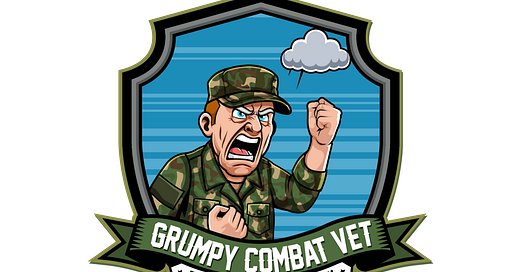Howdy,
Last week, I schlepped about 45 minutes from home to get my noggin’ checked out. My dear mother, who was in town for my birthday, made the trip with me. She was there to see me leave for Baghdad in 2006 and through my five subsequent deployments, so it was only fitting that she accompanied me to this event. We had come full circle in this little j…
Keep reading with a 7-day free trial
Subscribe to Grumpy Combat Veteran to keep reading this post and get 7 days of free access to the full post archives.


